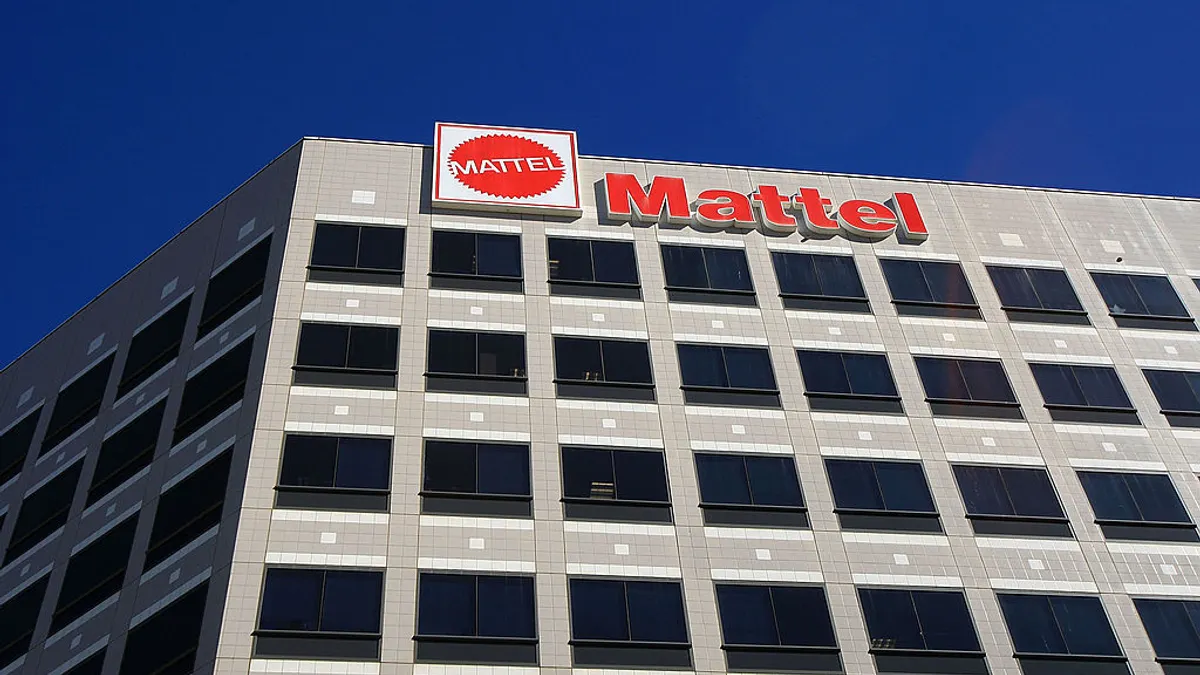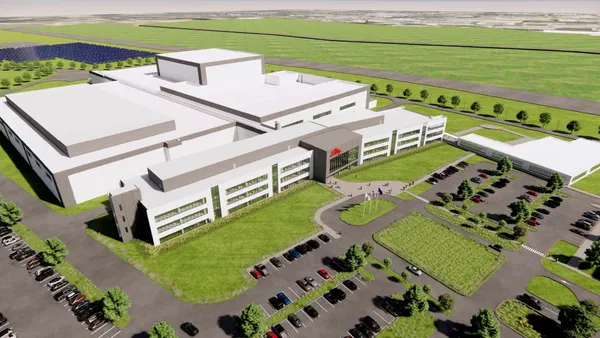Dive Brief:
- Toy makers Hasbro and Mattel faced challenges from delays in retail orders during the third quarter, but are starting to see early signs of a bounceback for the holiday season.
- Orders have “accelerated significantly” since the beginning of last month, Mattel CEO Ynon Kreiz said in an earnings call Oct. 21. Prior to that, delays in ordering patterns weighed on the company’s Q3 sales, which were $1.7 billion, down 6% from last year.
- Meanwhile, Hasbro has seen sales momentum build over “probably the last seven to eight weeks,” CEO Chris Cocks said in a separate October earnings call. E
Dive Insight:
As tariffs and trade uncertainty squeezed costs higher, retailers destocked their inventories and delayed purchase orders with Hasbro and Mattel, resulting in a summer slowdown. Delays continued through much of the third quarter, but executives said conditions started to improve in September and October.
“Retailers are restocking to meet the expected consumer demand … So all of this bodes well for a strong holiday season and also for a good ending of the year,” Mattel CFO Paul Ruh said on the call.
After raising prices to mitigate the effects of tariffs in Q2, Ruh said Mattel does not plan on making any more increases for the rest of the year. Looking to 2026, he said the company has not made a decision yet on pricing hikes, but is evaluating an “array of levers” to offset the impact.
Toymakers have historically relied on China as a manufacturing hub, leveraging its robust, cost-effective operations, but tariffs and trade uncertainty have made it riskier to do business there.
To mitigate risk, Hasbro has worked to reduce its exposure to China by relocating its operations closer to the United States. The company plans to have 30% of its total toy and game revenue sourced from China by 2026 as part of its tariff remediation playbook, CFO and COO Gina Goetter said on the call. That would be down from about 50% at the start of the year. Hasbro is also working to have 30% of its revenue based in the U.S. by next year.
“We're really putting all of our levers to work from how we think about pricing, how we're thinking about our product mix, how we're thinking about our supply chain and how we're managing all of our operating expenses to mitigate and offset the impact,” Goetter said.
Hasbro faced an estimated $20 million impact from tariff costs during Q3 and is bracing for a $60 million impact for the full year, Goetter said. Mattel said last quarter that its tariff impact will be less than $100 million for the year, excluding mitigation actions.
As the companies work through the current economic and geopolitical backdrop, the U.S. and China last week reached a consensus agreement related to tariffs and other trade-related priorities that could remove trade barriers between the countries.
“Usually, what we see in September and October is a pretty good harbinger for what's going to happen throughout the holidays,” Cocks said.
















